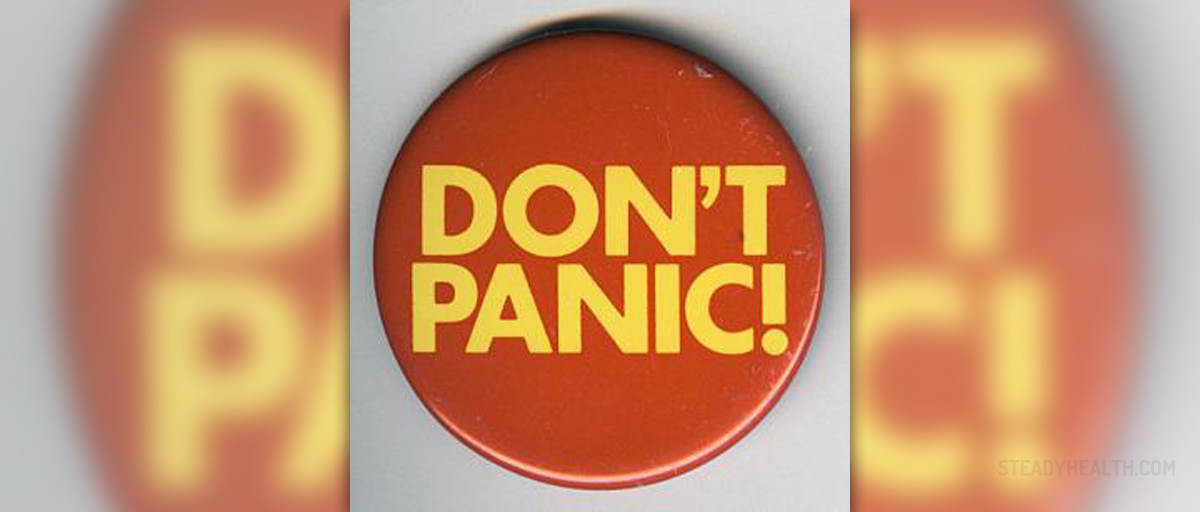
Introduction to Panic Attacks
Panic attacks are the extremely unpleasant and sudden episodesof a great and intense fear or anxiety and discomfort. Symptoms are developed graduallyand they reach their peak in within 10 minutes. The symptoms last approximately30 minutes. What happens in our body during that period, is that itinvoluntarily send signals to from our nervous system to our adrenal glands sothey start pumping out stress hormones.
Persons that suffer of panic attacks often say they fear ofdying while experiencing the common symptoms: muscular tension, fast heartbeat,rapid breathing, some of them feel a strong urge to escape, the others mightfeel claustrophobic. The most common symptoms are also hot flashes, sensationsof choking, sweating, dizziness, nausea etc.
Panic attacks are in most cases connected with the level ofeveryday stress. In some cases they can be provoked by changes in emotions: asa response to drugs, food, allergies, phobias or illness. They aren't alwayslinked to mental disorders.
At least 20 percent of adult Americans will experience panicattacks at some point in their life. It may seem that women are affected twiceas often as men, but women are also more likely to report such a condition.
Panic disorder is a complex condition but it can be treatedwith an integrated multi-modality approach. Herbal therapy can be used as apart of it.
Whenever we experience stress and feel anxiety our adrenalglands will release catecholamines -sympathomimetic "fight-or-flight" hormones in response to stress.Sometimes our sympathetic nervous system remains alerted, leaving us in anongoing state of anxiety - this is a suitable surrounding for panic attacks.Nervines is a class of herbs that helps our sympathetic nervous system relax.
Natural Remedies
Oatstraw (Avena sativa) - has both an immediate effect and aprolonged restorative effect. It works great against stress, weak nerve force,anxiety, depression and fatigue. It can also improve concentration, sharpenfocus and improve mental functioning.
German Chamomile (Matricaria chamomilla/ Matricariarecutita) - relaxes our muscles and nervous system. It is used as a mildsedative especially in children or teens, and as a gentle sleep aid. However,chamomile can cause allergy symptoms for those allergic to ragweed.
Lemon Balm (Melissa officinalis) - has a gentle lemon scent,related to mint. It is very helpful with sleep and digestive problems (nausea,bloating and colic like pains). If you suffer from hypothyroid problems, youshould turn to some other herbal solutions.
Skullcap (Scutellaria laterifolia) - great for all sorts of hormonallybased anxiety (PMS for example). It is best known for its anti-spasmodic and anti-hypertensive effects.
Valerian (Valeriana officinalis) – the most prominentanti-anxiety herb. It is used for insomnia and as a sedative for nervoustension, stress, intestinal cramps, hysteria etc. Those suffering from chronicexhaustion, adrenal fatigue, thyroid disorders and depression should avoid theuse of valerian.
Passionflower (Passiflora incarnata) – has relaxing andanti-anxiety effects. It is efficient with sleep disorders including nightmaresand middle of the night waking terrors. If you use an MAO inhibitor, it wouldbe best if you avoid taking this herb or use it under supervision.
If you consider using herbs in your treatment you shouldconsult a licensed health care professional, especially if you're alreadytaking antidepressants, have a diagnosed condition, if you are pregnant,breastfeeding, elderly or young person.


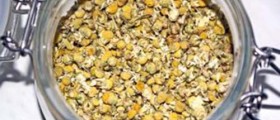






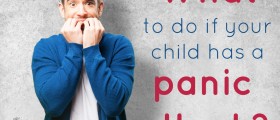
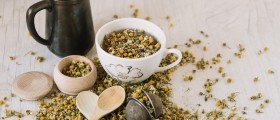




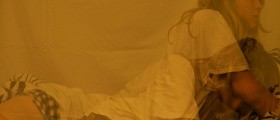

Your thoughts on this
Loading...